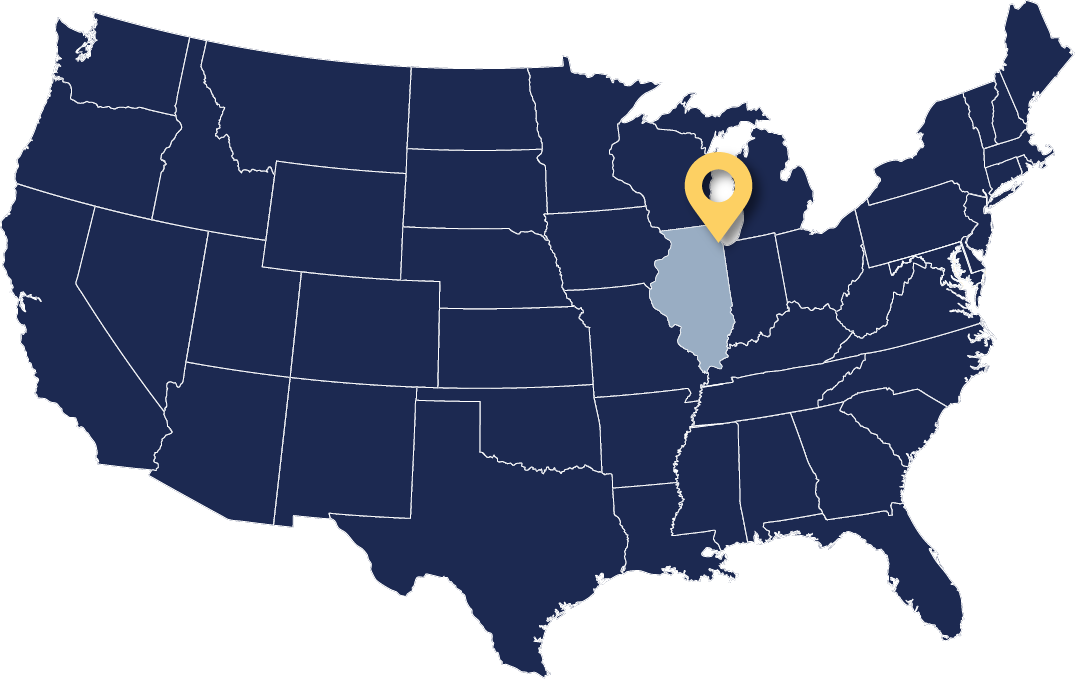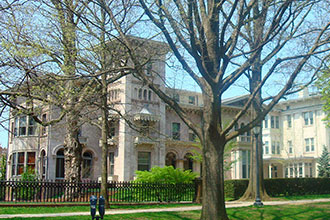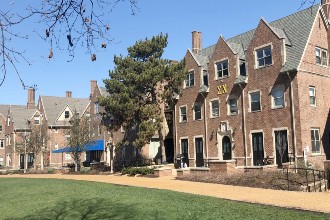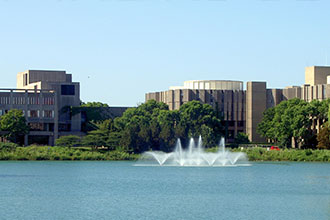UNIVERSITY OF CHICAGO
REQUIREMENTS AND CAMPUS GUIDE
School Name: University of Chicago
School Location: Chicago, IL
School Type: Private Research University
University of Chicago Admissions Rates Class of 2025
Applications: 37,977
Admitted: 6.5%

General Info
SAT/ACT Scores
Test Optional for 2022-2023
Fall 2021 Test Scores
SAT Middle 50%: 1510-1560
ACT Range: 33-35
Dates/Deadlines
Early Action/Early Decision 1: November 1
Early Results: Mid-December
Regular Decision/Early Decision II: January 2
ED II Results: Mid-February
Regular Results: Late March
School Information
Schedule: Quarter System
Curriculum Type: Core Curriculum
Greek Life: Yes
Athletics: D3
Chicago University TIPS & GUIDE
Chicago Application Requirements, Admissions Tips, and University Guide
Where is UChicago?
Chicago is home to UChicago’s main campus, but the university has international campuses all over the world: in Paris, Beijing, New Delhi, and Hong Kong. UChicago’s Chicago campus is actually 20 minutes south of Chicago, in the college town of Hyde Park. Hyde Park is buzzing with fun activities, such as museums, restaurants, concert halls, and theaters. There are plenty of volunteer opportunities for UChicago students who want to engage with their community in a meaningful way. The campus itself is the quintessential cozy college campus, with gothic buildings intermixed with grassy lawns, a pond, and towering trees.
What is living on Campus Like?
Although only around 55% of UChicago students live on campus, campus life is vibrant and the community is tight knit. UChicago’s seven residence halls (known to students as North, South, Max Palevsky, Snell-Hitchcock, Burton-Judson, International House, and Woodlawn Commons) contain 48 houses, each of which are home to about 80 students—though they can range from 40 to 110 students. The houses aren’t separated by year or field of study, so living on campus is an opportunity to meet students you might otherwise never cross paths with in the classroom. Each house has its own traditions and a staff of both students and faculty who keep the house culture alive. These traditions can include midnight soccer, video game tournaments, baking, study breaks, trivia against other houses, or even trips downtown to try new restaurants. There are three dining commons in which each house has a table demarcated by the house banner, but students are free to sit wherever they want. There is also a food court and a dozen cafes around campus, where students can bond with each other or residential deans over a meal. UChicago has a six quarter residency requirement, where first year students must live on campus their first six quarters of enrollment. Summer quarters do not count towards the fulfillment of this residency requirement, however quarters spent in study abroad programs do count. As an incoming student, an housing application is completed, where students provide responses to various lifestyle and living preferences. After completion, new students are randomly assigned to a residence hall and House based on their Humanities course registration. After this initial assignment, responses to lifestyle and living preferences within each student’s housing application are used for room/suite mate matching.
Living on campus isn’t the only way to find a community you feel comfortable in at UChicago. With over 450 student organizations, you can find a team or club in which you can discover your passions and get to know your peers outside the classroom. UChicago is also home to University Theater, a student run theater company that puts on over 30 shows a year, fraternities and sororities, and hosts of other clubs. If athletics is more your thing, students can watch one of the 20 D3 athletic teams compete, or become involved in one of the 500 intramural or nearly 40 club teams.
All first-year students have a meal plan that gives continuous and unlimited access to the dining hall. After the first year, students choose the meal plan that best suits their needs. UChicago has three different dining halls that have House tables: Bartlett, Cathey, and Baker Dining Commons. In addition, students can have Maroon Dollars that may be spent either for additional meals in the dining commons, such as guest meals, or at select retail locations on campus.
Is UChicago Diverse?
UChicago’s Class of 2025 is 27% Asian, 19% Hispanic or Latino, 10% Black or African American, and 18% International. 11% of students are from New England, 24% are from the mid-atlantic region, 14% are from the south, 19% are from the midwest, 21% are from the west coast and northwest, and 11% are from the southwest. UChicago has a long history of diversity; they awarded the first PhD to an African American woman and their business school was the first to offer a minority scholarship program in the U.S.
What are academics like at UChicago?
UChicago has five collegiate divisions: Biological Sciences, Humanities, Physical Sciences, Social Sciences, and the New Collegiate Division (an interdisciplinary division). Regardless of collegiate division, UChicago students must fulfill the Core Curriculum requirements. Students have more than 50 majors and 40 minors to choose from, as well as 20 specializations. Since UChicago operates on the quarter system, the school year moves at a faster pace than most other four-year universities. As most students participate in internships rather than take classes over the summer quarter, the quarter system typically ends up functioning more like a trimester system. This schedule challenges students to gain more knowledge during their undergraduate years. Fortunately, UChicago offers a lot of support to students. UChicago’s many academic and career advisors help students keep up with the demanding pace and course load.
What is UChicago’s core curriculum?
The Core is distinctive for its small, Socratic-style classes with no more than 19 students per seminar. While Core math and science classes may be taught as large seminars, those classes will also have mandatory small discussion sections that fit this small, discussion-based approach. The Core Curriculum consists of the following course requirements:
- 2-3 courses of physical sciences
- 1-2 courses of math
- One year of college-level language
- 2-3 courses of biological sciences
- 1-2 courses of arts, music, or drama
- 2-3 courses of humanities
- 3 courses of social sciences
- A writing seminar
- 2-3 courses of civilization (can be completed by studying abroad)
What special opportunities does UChicago offer students?
Through the Jeff Metcalf Internship Program, UChicago students have exclusive access to over 4,000 paid, substantive internships each year. With over 900 internships in Chicago alone, and other internships around the U.S. and 85 foreign cities, UChicago students have the world at their fingertips. If you want to go abroad without the goal of simply studying or working, Treks take groups of 15-25 students around the world on two day trips to meet face-to-face with alumni who work in the arts, business, public policy, governmental work, and beyond. Treks take place in cities from Los Angeles to New York, and from Chicago to Austin, as well as around the globe. For students who do want to travel abroad to complete classes, the core’s Civilizations requirement can be satisfied in multiple different countries. Students can participate in programs such as astronomy and astrophysics in Paris, Economics in Hong Kong, and any number of language immersion programs.
Additionally, over 80% of UChicago students conduct research at one of the 160+ research institutions and committees on campus, not to mention various off-campus opportunities, preparing them for the world of scholarship that awaits them in post-grad life. For example, UChicago is one of only two universities in the nation to manage two U.S. Department of Energy National Lab, Argonne National Laboratory and Fermilab and the Marine Biological Laboratory.
How do I apply?
You can apply to UChicago through the Coalition or Common Application as well as the Questbridge National College Match program. In addition to submitting your Coalition or Common Application, you’ll need to submit a UChicago supplemental essay. While the supplemental essay is required, there are also other optional supplements for students who want to demonstrate their artistic, research, or musical skills. Additionally, you can submit a video profile to share your thoughts and personality in a way that can’t be conveyed as effectively on paper. In addition to these materials, students will have to submit a $75 application fee, high school transcript and secondary school report, a mid year report, two teacher recommendation letters, and a counselor letter of recommendation.
UChicago is a test optional school, but domestic students are strongly encouraged to submit their SAT or ACT scores, and international students must submit them. For the Class of 2025, the ACT 50th percentile was 33-35 and the SAT 50th percentile was 1510-1560. These scores only reflect the average scores of admitted students; the overall range was 20-36 for ACT and 1020-1600 for SAT.
What Are the Various Application Plans at UChicago?
UChicago offers four application plans. Students can apply to UChicago Early Action (EA), Early Decision (ED I), Early Decision II (ED II), or Regular Decision (RD). Early Action is the best option for students who are competitive applicants and want to hear back from UChicago early, but don’t want to commit before considering other admissions offers. Early Action applications are due November 1st, and UChicago sends out decisions in mid-December. Early Action may be the best choice for you if you would like to compare multiple financial aid packages from different schools. ED I and ED II are both binding application programs, meaning that admitted students must revoke all other college applications and enroll in UChicago. The difference between ED I and ED II is merely one of timing: the ED I deadline is November 1st, and students receive their decisions in mid-December, whereas the ED II deadline is January 4th and students hear back in mid-February. The benefit of having an ED II option is that students technically have the opportunity to apply ED or EA elsewhere first, and if they don’t get in, they can apply to UChicago ED II and still hear back earlier and benefit from a higher admissions rate than if they were to apply RD. The Regular Decision plan has a January 4th deadline and a decision release date in late March.
Is UChicago Affordable?
UChicago has a no barriers policy, which is “a comprehensive plan to increase access to college, support students as they receive an empowering education, and prepare them for lifelong professional success.” That being said, UChicago’s estimated cost of attendance for the 2022-2023 year, without aid, is $85,536 including tuition, room and board, fees, books, and other expenses. Students from families who earn under $125,000 per year pay $0 for tuition, and students from families earning less than $60,000 have tuition, fees, room, and board all covered by financial aid. All first generation students receive a $20,000 scholarship over the course of their four years and are guaranteed a paid internship for their first summer, which helps bridge a major achievement gap between students from different educational backgrounds.
If you’re curious about what you and your family would be expected to pay for an education at UChicago, you can use their net price calculator.
Chicago Admission Rates
| | Data Source | Admission Rate |
|---|---|---|
| Class of 2025 | CDS 2021-2022 | 6.50% |
MORE SCHOOLS TO CONSIDER

Yale University
New Haven, CT

Washington University
St. Louis, Mo

Northwestern
Evanston, IL
View All Schools ↓
| American Univ Amherst Brown Boston Univ CalTech Carnegie Melon Claremont McKenna Columbia Cornell Dartmouth Duke Emory Georgetown Georgia Tech Harvard Hopkins |
MIT NYU Northeastern Northwestern Notre Dame Princeton Rice Stanford Tufts Tulane UChicago UC Berkeley UC Davis UCLA |
UCSB UCSD UIUC UMich UNC UPenn Univ of Southern California UT Austin UVA Vanderbilt Villanova WashU Williams Wisconsin Yale |
*Updated 2022
